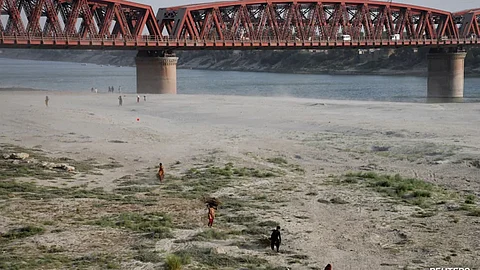
- Home
- Live Blog
- Breaking News
- Top Headlines
- Cities
- NE News
- Sentinel Media
- Sports
- Education
- Jobs

Nuclear Rhetoric Meets River Diplomacy
In a dramatic turn of events, Pakistan has called on India to resume the normal functioning of the Indus Waters Treaty—just days after top Pakistani leaders issued aggressive threats of war and nuclear retaliation over the water-sharing dispute.
The appeal, made by Pakistan’s Foreign Office on Monday, came shortly after Pakistan’s Chief of Army Staff, General Asim Munir, hinted at nuclear escalation, while former foreign minister Bilawal Bhutto accused India of inflicting "great damage" and urged Pakistanis to unite against Prime Minister Narendra Modi.
Court Ruling Spurs Fresh Demands
Pakistan’s renewed call came in response to an interpretation by the Court of Arbitration on 8 August. Islamabad welcomed the Court’s position, which clarified India’s obligations under the 1960 Indus Water Treaty—particularly concerning hydroelectric projects on the Western Rivers: Chenab, Jhelum, and Indus.
“The Court declared that India must ‘let flow’ the waters of the Western Rivers for Pakistan’s unrestricted use,” said Pakistan’s Foreign Office in a statement. “Hydroelectric projects must strictly follow the Treaty’s requirements, not India’s interpretation of ‘ideal’ practices.”
The Indus Waters Treaty, brokered by the World Bank, has long been seen as a rare example of cooperation between the two nuclear-armed neighbours. However, India has refused to recognise the jurisdiction of the Court in this matter, citing unilateral objections raised by Pakistan regarding Indian infrastructure projects.
India’s Retaliation and the Pahalgam Attack
India suspended the treaty’s operations after the 22 April terror strike in Pahalgam, which left several security personnel dead. Citing Pakistan’s alleged continued support for terror groups, New Delhi began reviewing multiple bilateral engagements—including the water-sharing pact.
The fresh war rhetoric from Pakistan, paired with its diplomatic outreach, places the Indus Waters Treaty at the centre of a deepening political and military crisis in South Asia.